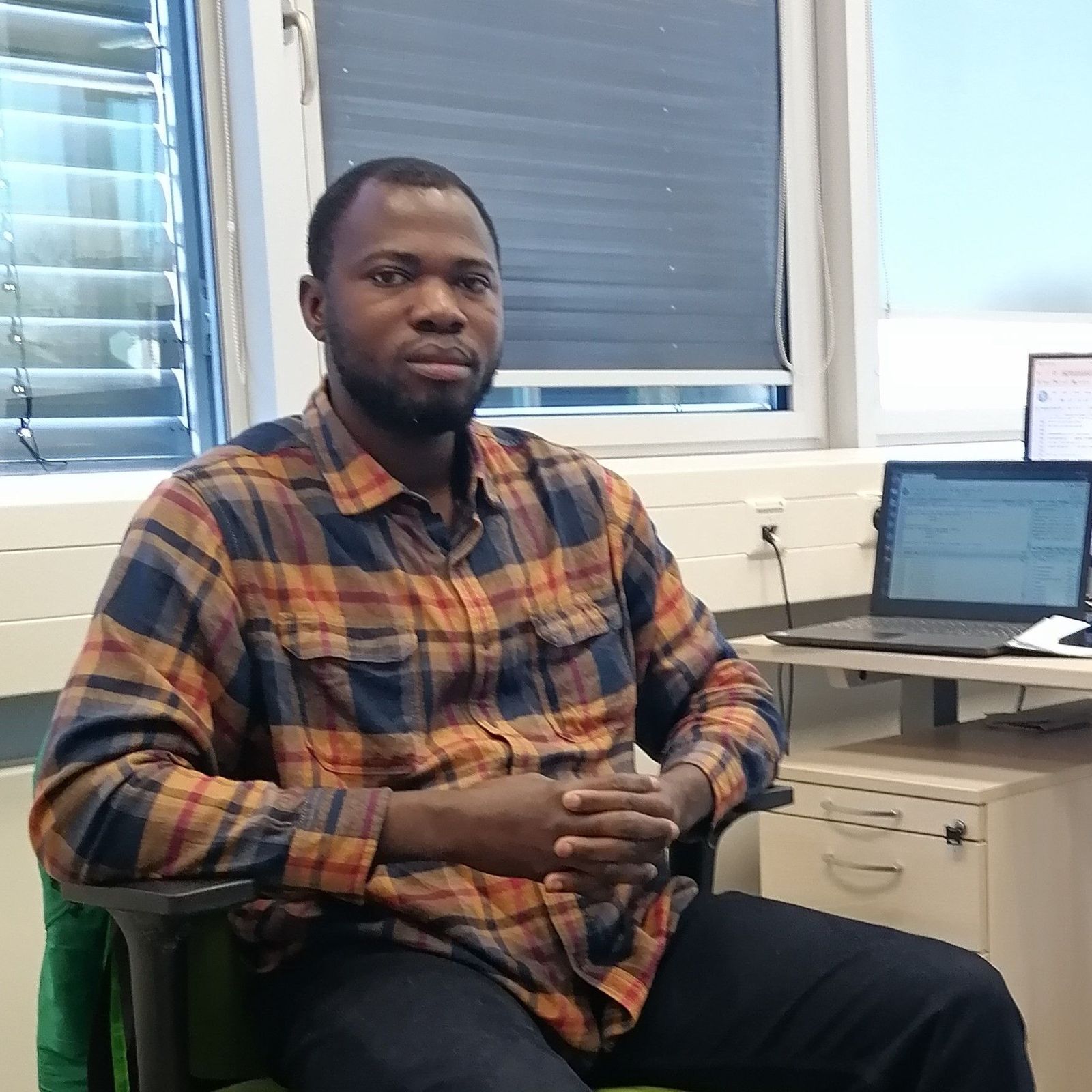Interview Mathieu Ayenan
Mathieu Ayenan completed his PhD at the University of Ghana and visits the Institute for Quantitative Genetics and Genomics of Plants (HHU) for 6 weeks.
Tell us something about your journey in science so far?
I completed my Ph.D. in plant breeding at the University of Ghana in 2023 and focused my research on heat tolerance in tomatoes, identifying new sources of heat tolerance, unraveling the genetic architecture of heat tolerant traits, and developing strategies to improve hybrid tomato development for adaptation to heat tolerance. I am currently working with the World Vegetable Center as a research assistant in vegetable breeding. I have over 10 years of experience in tropical agriculture and I have participated in various collaborative research initiatives at national and international levels. My interests include breeding climate-smart crop varieties, seed systems development, and building food systems resilience.
More about my research activities (https://www.researchgate.net/profile/Mathieu-Ayenan).
"My interests include breeding climate-smart crop varieties, seed systems development, and building food systems resilience."
What are you doing at CEPLAS and why did you decide to join CEPLAS?
I am visiting the Institute for Quantitative Genetics and Genomics of Plants, at Prof Stich's Group (Heinrich-Heine-University) for six weeks. This decision stemmed from my need to improve my data analysis skills. In Prof Stich's, I am assessing the population structure and conducting genome-wide association studies in a potato diversity panel. Joining CEPLAS also allows me to expand my professional network and get familiar with the research environment in plant breeding in Germany.
Have you already settled in well in Düsseldorf and at the University? What do you like most about Düsseldorf?
I have settled in very well with the support of CEPLAS. I am yet to explore the city but so far, I am enjoying contemplating the Düssel river since my room is close to its bank.
I am grateful to CEPLAS and all those who made my research stay possible.
